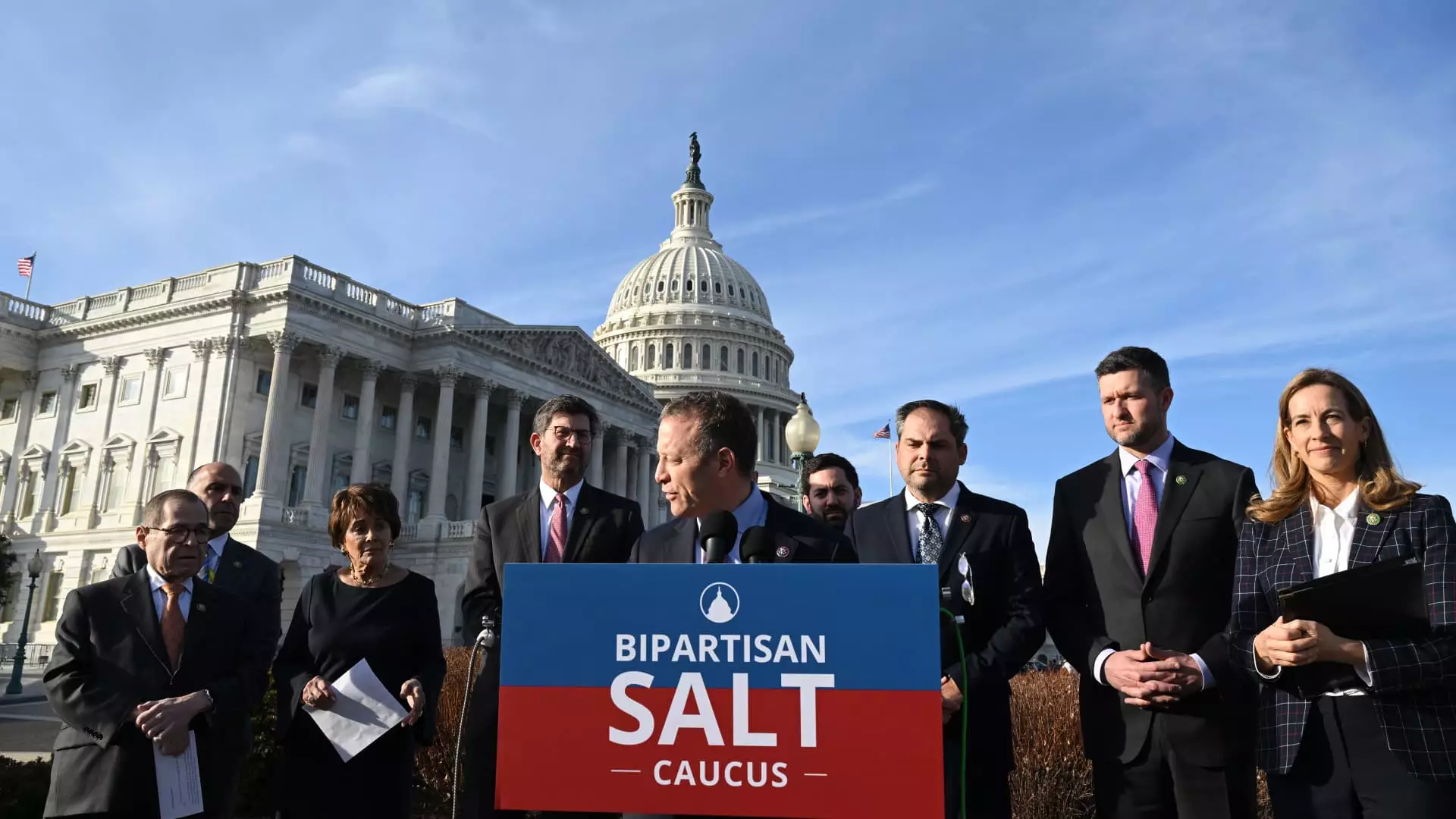As we approach the tumultuous landscape of federal tax negotiations leading up to 2025, the State and Local Tax (SALT) deduction emerges as a controversial point that encapsulates broader socio-political and economic divides in America. Its history, tied to the Tax Cuts and Jobs Act (TCJA) of 2017, serves as a microcosm of the ongoing dispute over equitable tax policy. With lawmakers entrenched in partisan lines, the implications of the SALT deduction will prove to be more than a mere fiscal topic; they are a reflection of values and priorities that shape our society.
The Tangible Impact on Taxpayers in High-Tax States
The enduring $10,000 cap on the SALT deduction significantly affects residents of states like California, New Jersey, and New York, where property and income taxes often soar. By limiting the federal deduction for state and local taxes, Congress essentially imposes a heavier burden on taxpayers in these high-tax regions. Where there was once an unbridled capacity to write off such levies, the SALT cap has disproportionately situated the financial strain on taxpayers while alleviating responsibilities for those in lower-taxed states. The resulting gap in equitable taxation is alarming; it not only perpetuates wealth divides but also weighs down the American ideals of fairness and opportunity.
The way this cap has ignited outrage among lawmakers hailing from impacted states illustrates a very important truth: taxation isn’t merely a bureaucratic process; it touches people’s real lives and livelihoods. When elected officials from these states argue against the cap, they aren’t just lobbying for tax reform; they’re advocating for the dignity and economic stability of their constituents.
Echoes of Change: Trump’s Shifting Stance
Remarkably, the very architect of the SALT cap, former President Donald Trump, has sought to realign his stance ahead of future elections. Vowing to “get SALT back,” he has resurrected discussions around this deduction, a move that could capture the attention of an electorate feeling the pinch of increased taxes. However, this abrupt pivot raises critical questions about sincerity versus political expediency. Is Trump genuinely advocating for middle-class families, or is this merely a stratagem to recapture political favor?
This contradiction underlines the perilous realm of tax policy, where decisions often hinge on political will rather than economic rationale. It also opens the door to speculation: if Trump, backed by a newly formed Republican majority, is truly committed to reforming SALT, what else will be sacrificed to balance this fiscal equation?
The Revenue Dilemma: Balancing Acts and Consequences
Policy experts warn that the SALT cap is not only a hot-button issue but also a major revenue generator for the federal government. Proposals to raise the SALT limit—whether to $20,000 or higher—pose a daunting challenge for budgetary neutrality. Removing or adjusting the cap could potentially lead to a $170 billion dip in federal revenue, an amount unfathomable when considering the financial landscape post-COVID-19 and ongoing inflationary pressures.
The balancing act here is incredibly complex. Lawmakers must navigate the treacherous terrain of public opinion, tax fairness, and the stark realities of governmental budgeting. The long-term consequences of either expanding the SALT deduction or scrapping the cap entirely risk compounding the national debt and disrupting the fiscal strategies already jeopardized by the TCJA’s impending expiration of critical tax provisions post-2025.
Looking Forward: Emerging Solutions or Escalating Divides?
What’s next for the SALT deduction debate? Legislative proposals abound, ranging from increasing the cap to creating exemptions based on income levels. However, none of these options come without their own sets of complications and potential backlash. As negotiations loom ahead, there’s the ever-pressing question: can policymakers find a middle ground that serves all constituents or will they further entrench class divides?
The potential for a major tax reform deal could compel Congress to finally confront the inequities this cap brings to the forefront. Although the pressing timeline may incite urgency, it is critical that lawmakers exercise caution. They must ensure that any solutions not only reflect the immediate financial needs of taxpayers but also uphold a commitment to long-term fiscal responsibility. The SALT deduction debate can serve as a litmus test for not just tax policy, but for how we envision our country’s economic landscape and responsibility to our citizenry.
In this volatile storm of financial negotiations, leaders need to boldly navigate the fine line between economic necessity and ethical governance. The conversation about SALT may very well redefine American tax policy for years to come.


Leave a Reply